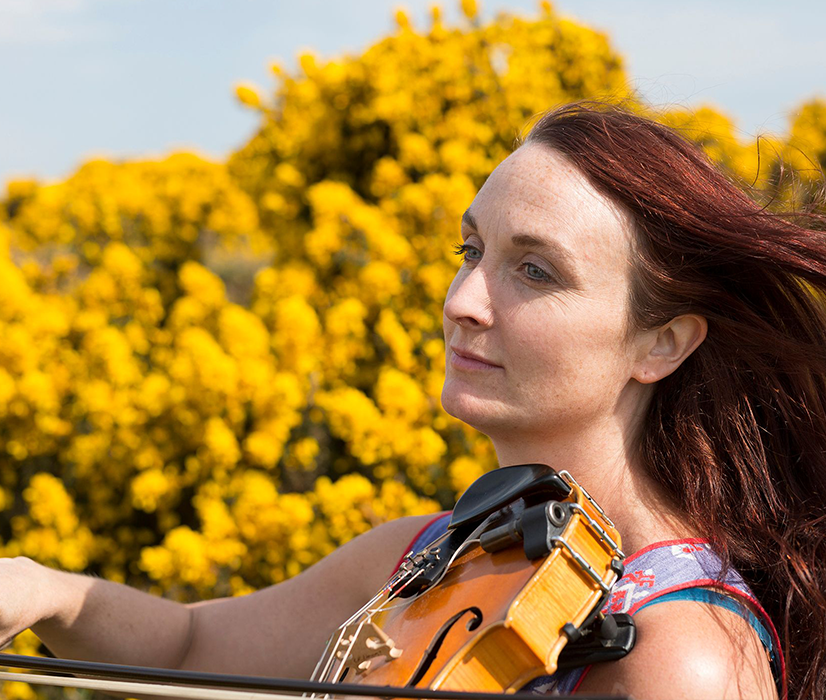International Women's Day | Newcastle University
7 March 2022 | By: Newcastle University | 24 min read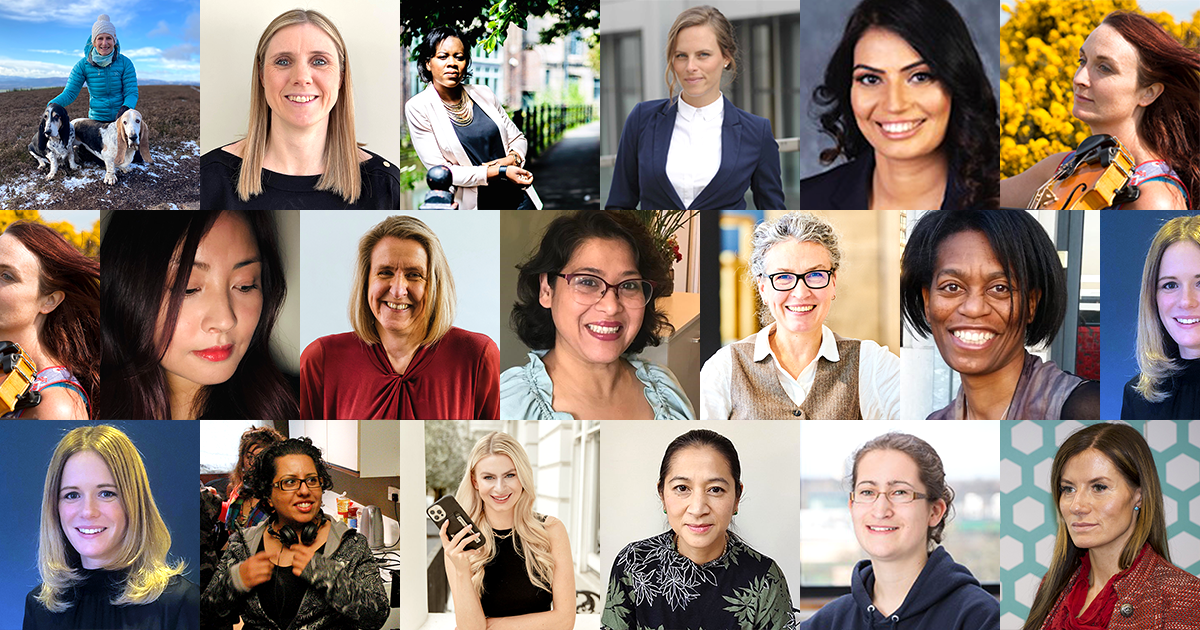
This International Women's Day, we're celebrating some of the truly inspirational women we have with us here at Newcastle University.
Featuring
- Dr Malasree Home, Race Equality and Accreditation Advisor
- Dr Laura Greaves, Lecturer in Mitochondrial Genetics
- Dr Amy Vincent, Sir Henry Wellcome Postdoctoral Fellow
- Cissie Tsang, Collaborative Projects Manager
- Dr Lucy Hatt, Senior Lecturer in Leadership
- Dr Komal Kalra, Lecturer in International Management
- Dr Fiona Whitehurst, Senior Lecturer in Management
- Dr Bunmi Eniola, Physical Geography Facilities Manager
- Nancy Kerr, Lecturer in Folk and Traditional Music
- Dr Vi Parker, Equality, Diversity and Inclusion (EDI) Training Lead
- Dr Tina Gharavi, Senior Lecturer in English: Film/Digital Media
- Helen Currie, Degree Programme Director of Business, Accounting and Finance (PwC Flying Start degree)
- Natasha Mauthner, Professor and Director of Research, Business School
- Carol Moxam, Lecturer & Specialist Speech & Language Therapist
- Dr Karen Elliott, Senior Lecturer in Enterprise and Innovation (Fintech)
- Dr Klara Scheurenbrand, Lecturer in Marketing
- Natalie Ellis, Business Management Alumna
Dr Malasree Home, Race Equality and Accreditation Advisor
"I aspire to leave behind a better world for my daughter to grow up in."
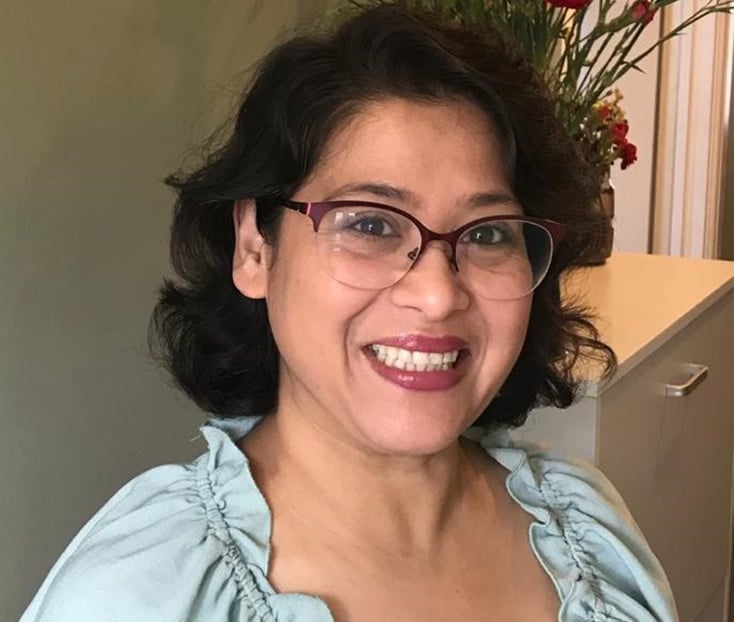
What does it mean to be a woman in the area you work in?
As a woman from a minoritised background working in Equality, Diversity and Inclusion (EDI), I am very conscious of the intersecting lines of both privilege and inequality, and the need to continuously strive and make organisations more inclusive spaces. This is something I feel very passionately about, as the presence of diverse voices can only make decision-making more meaningful in organisational settings. However, there is also a personal spin to my area of work – like all parents, I aspire to leave behind a better world for my daughter to grow up in.
What privileges or challenges do you stereotypically face?
A big challenge that I face is that I do not ‘see’ more people like me in positions that have greater input into decision-making processes. In the absence of role models, it is easy for Imposter Syndrome to bite, and I too face moments of self-doubt. However, these are also moments when I consider how privileged I am in having a supportive family, and friends and colleagues who provide encouragement, support and validation.
Women from minoritised groups still face the impact of both gendered norms and casually racist behaviour, though I personally feel that I have also faced challenges as a working parent and while changing careers from an academic to a professional role. Nevertheless, my experiences make me who I am, and empower me to support my colleagues and community in any way I can.
What role would you like to play in relation to women's rights in your area of expertise?
At a very basic level, I would advocate respect for everyone. Unless we learn to treat everyone, indeed everything, with the same degree of respect, we will be very far away from even a notional grasp of equity. However, I do feel very strongly about race equity, and especially the need to do more to dismantle structures that enable colourism (favouring lighter-skinned individuals over darker-skinned ones) that are quite deeply entrenched in some communities.
What advice would you give to young women going into your industry?
I would tell them to be authentic and bold, but also strategic in how they choose their battles (because you cannot win everything all the time). However, I also feel that the young women of today already feel passionately about causes, and can articulate what is right and wrong, so I would actually flip this a bit and send out a message to others. I would request those women who have managed to attain senior positions to consider how they can raise more women up through their mentorship and guidance, and I would encourage all men to think about how they can support women in the workplace, especially those that don’t match the norms of ‘womanhood’ that they may be accustomed to.
Which women inspire you?
There are women in this world who wear many hats and juggle many roles, caring for their families and making do, sometimes in the most straitened of circumstances, but always with a smile. You may see them everywhere: at work, amongst colleagues and friends, within your families, or sometimes even in a shanty hut in a deprived area of the developing world. These are the women who inspire me to carry on striving.
Dr Laura Greaves, Lecturer in Mitochondrial Genetics
"I strive to ensure visibility and recognition for the skills and achievements of women in our field."
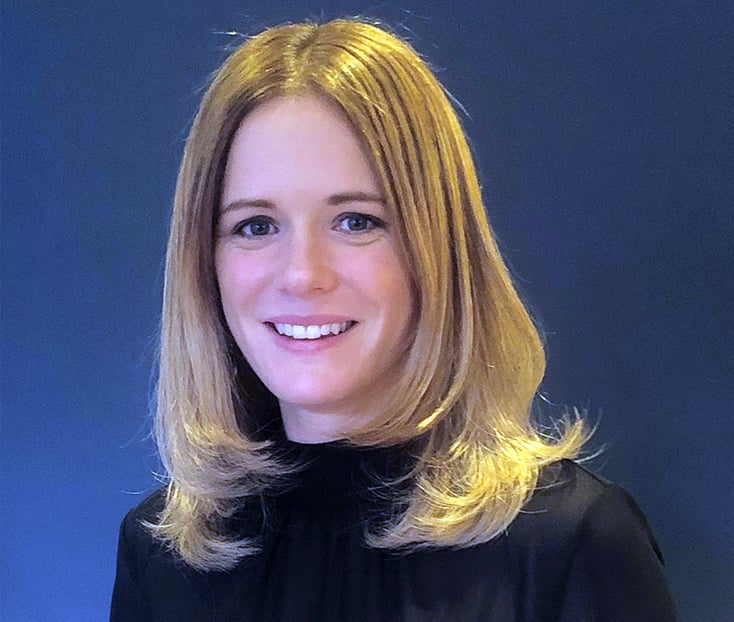
What does it mean to be a woman in the area you work in?
It is still clear that there is a disproportionate male predominance in senior roles within the University and in academia in general. This is beginning to change, but it is happening slowly.
I have been fortunate to have had fantastic support and mentorship from both female and male colleagues and managers, and have felt that my gender has not been an issue so far. This has enabled me to lead a research group of scientists, technicians and students in the field of stem cell and cancer metabolism.
What role would you like to play in relation to women's rights in your area of expertise?
I want to support women in research to fulfil their potential and achieve their ambitions by providing a safe, supportive, and open work environment. This means positively encouraging a flexible approach to working to enable success as well as a good work-life balance. I also strive to ensure visibility and recognition for the skills and achievements of women in our field.
What advice would you give to young women going into your industry?
I would say be determined, find an area of research that really interests you, and believe in yourself. It’s also really important to have good mentors. I have had excellent, very supportive mentors throughout my career; Professor Doug Turnbull, Professor Caroline Austin and Professor Neil Perkins have been amazing in helping me achieve my ambition of establishing my own research group. Finally, support and champion each other, we all need a little help to get to where we want to be!
Which women inspire you?
At work, I am surrounded by strong women who inspire me every day, from undergraduate students to world-leading academics. These women achieve incredible things and show inner strength and resilience no matter what challenges life throws at them.
Outside of science, I find the ultra-marathon runner, Sophie Power, awe-inspiring. She completed the 105-mile Ultra-Trail du Mont Blanc with stops to breastfeed her 3-month-old son. Afterwards she said ‘We shouldn’t have to lose who we were before we were mothers’. I 100% agree!
Dr Amy Vincent, Sir Henry Wellcome Postdoctoral Fellow
"There is an abundance of talented female scientists in both mitochondrial biology and neuromuscular disease."
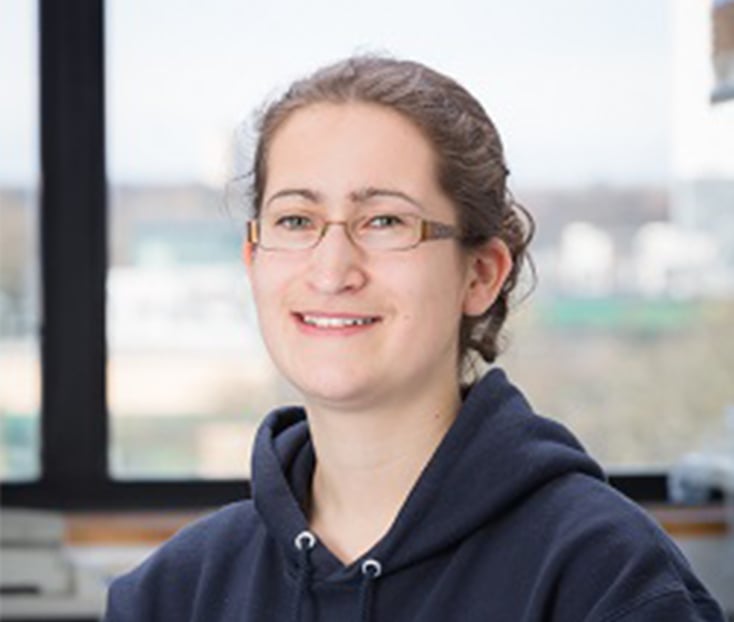
What does it mean to be a woman in the area you work in?
There is an abundance of talented female scientists in both mitochondrial biology and neuromuscular disease. But this was not always the case, I am therefore incredibly grateful to those women who came before and paved the way and raised the expectation of female scientists.
What privileges or challenges do you stereotypically face?
There are many who believe you cannot have a family and work-life balance as well as a successful career. Often it is the belief that you aren't as committed to your career that sets women back, which doesn't seem to be the case for men. It can also be harder to be listened to, to have your ideas and thoughts valued and the onus is on you to fight for that. Thankfully there are also many now who don’t see it this way and instead help and support women in science, we need more of this.
What advice would you give to young women going into your industry?
Pick an area of research that you love and that fascinates you, be kind to the people you work with and support them. That love of the work and the support of others is what will carry you through on the difficult days.
Which women inspire you?
I was inspired into biomedical research by Prof Liz Sockett from Nottingham University, her passion for science, educating the next generation of scientists and mentorship has been a guiding light for me. I am lucky to count her as both a friend and mentor.
I am also inspired daily by my friend and colleague Dr Amy Reeve at Newcastle University who is a shining example, an incredible scientist, an amazing mum and a kind and supportive mentor and friend. We need more women like Amy in science.
Cissie Tsang, Collaborative Projects Manager
"If something doesn’t sit right with you or if something doesn’t feel right, challenge it!"
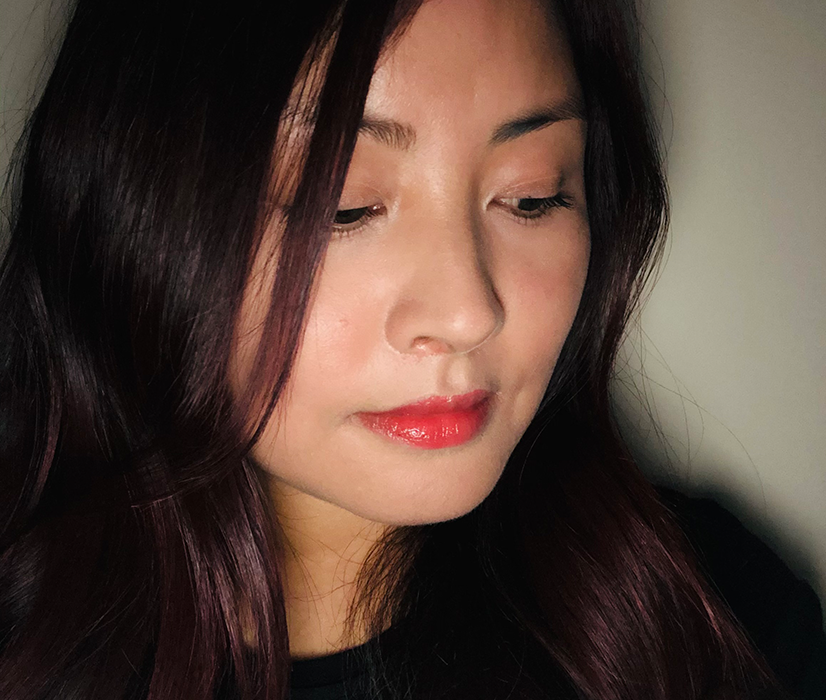
What does it mean to be a woman in the area you work in?
Women from minoritised backgrounds are under-represented in Higher Education and I sometimes feel the pressure of continuously striving to be better in order to be ‘good enough’. I’m surrounded by amazing women who are driven by their values and together we strive to innovate, be creative and collaborate to become more inclusive in our practice and hopefully make positive change along the way.
I’m incredibly lucky to work in an area of Higher Education that is so varied, allows experimentation and I get to engage with like-minded, passionate individuals from all sectors who want to make a difference in society.
What privileges or challenges do you stereotypically face?
I am in a role with a lot of autonomy and freedom to lead on projects that are values and purpose driven. I can struggle at times with self-belief and confidence to lead, especially when I don’t always see myself represented at leadership levels. I’ve made a point over the last couple of years to be the change I want to see and do things that are outside of my comfort zone, including being more visible.
What role would you like to play in relation to women's rights in your area of expertise?
I have recently been appointed as the Professional Services Co-Chair of the EDI Committee in the Business School. We’re like a start-up at the moment with all hands on deck, trialling a lot of initiatives and learning as we go. I’d like to provide more opportunities for open and honest dialogue, hear the different experiences and challenges women face in order to support more women to thrive in Higher Education.
What advice would you give to young women going into your industry?
If something doesn’t sit right with you or if something doesn’t feel right, challenge it! Early on in my career, I was told by a senior manager that my application for a role was turned down because they didn’t believe ‘someone of my grade’ could do all of the things I talked about. I mentioned this to another manager because it didn’t feel right and I was warned not to challenge it because it would cause a lot of trouble. I wish I had an ally at the time who could have given me the confidence to speak up!
Which women inspire you?
I work with a team of incredible women who live by their values and I see that manifest in everything they do. They have really challenged me, in a really nurturing way and I can honestly say it has changed my approach to work and also how I see myself. In the past, I have always focussed on the things that I am good at and avoided things that perhaps made me a bit uncomfortable. I’ve said ‘yes’ to lots of opportunities that I would have avoided in the past. It really shows how important it is to surround yourself with the right people who inspire you to be a better version of yourself. (as cliché as that sounds!)
Dr Lucy Hatt, Senior Lecturer in Leadership
"There are lots of successful female founders that don't seek the limelight and just get on with it, those are the people I admire the most."
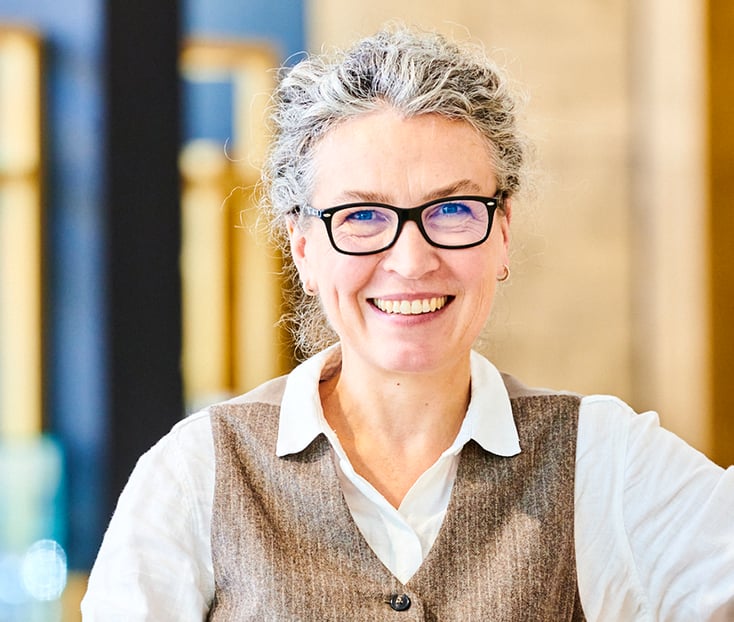
What does it mean to be a woman in the area you work in?
I specialise in leadership development and entrepreneurship, teaching on the full-time MBA and part-time executive education programmes. My research explores the value of the threshold concept framework to enterprise and entrepreneurship educators - it's an interesting area to work in as colleagues can be both academics and professionals. Being a woman in enterprise and entrepreneurship education isn't very unusual, but it gets rarer at the more senior levels. Outside of education, it's still true that many more men than women start businesses, especially in tech.
What role would you like to play in relation to women's rights in your area of expertise?
I would like to change people's perception of entrepreneurship from being a largely selfish activity, where success is measured by the speed and the quantity of money that's been amassed, to one where value of all kinds is created for others, at the same time as fulfilling and realising the individual's personal values. By shifting the focus from self to others, I think more women would be attracted to entrepreneurial activities and we would see more diversity of all kinds in venture creation, whether that means starting a business or another type or organization, or by thinking and practicing more entrepreneurially as an employee.
What advice would you give to young women going into your industry?
For women contemplating a career in academia - I would say stay networked and connected both within your industry and across industries. I think my previous experience as a practitioner has made me a much better educator.
For women contemplating starting a new venture - I would say networks are really important again, involve your future customers, start small, practice iterative experimentation and only risk what you can afford to lose.
Which women inspire you?
Inside academia, the woman that inspires me most is Professor Saras Sarasvathy. She articulated the effectual approach to entrepreneurship which really resonated with me, changed what I teach, and informed my research. She is so passionate about her subject, as well as being very warm and approachable.
When thinking about entrepreneurs, the women that inspire me the most are the ones who just get on with it - they are not usually in the public eye. I used to think that part of being an entrepreneur was about enjoying the limelight - like Elon Musk, Richard Branson, Alan Sugar, Jeff Bezos etc. until someone pointed out that they were entrepreneurs who just happened to also enjoy the limelight. There are lots of successful female founders that don't seek the limelight and just get on with it, those are the people I admire the most.
Dr Komal Kalra, Lecturer in International Management
"Through my research, I am bringing to attention the covert biases faced by women and minorities."
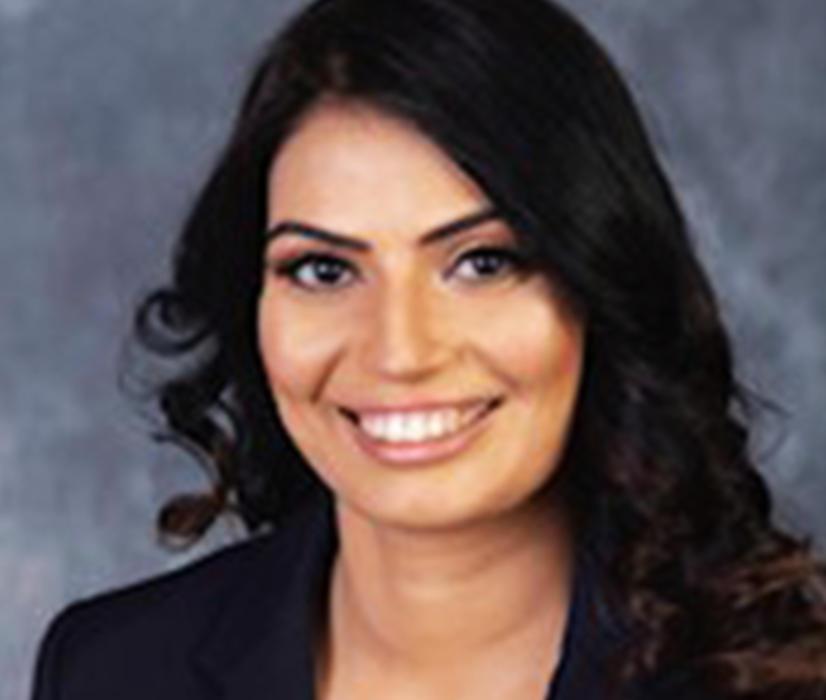
What does it mean to be a woman in the area you work in?
I am Lecturer in International Management and conduct research on issues related to language and gender diversity in organizations. Within these two domains, there is a higher representation of women compared to traditional areas of international management, which has provided me with opportunities to interact with and learn from some of the most brilliant female researchers globally.
What privileges or challenges do you stereotypically face?
I am privileged to have received the education I always wanted and to work in a university that is supportive of female academics.
I do, however, find that women of colour face a number of stereotypical challenges. For example, when I decided to pursue a Ph.D., several friends and relatives asked how I would find a suitable man to marry if I kept studying. I was also told to be conscious of my age, i.e., if I graduated in my late 20s or early 30s, I would end up alone.
Professionally, I have often received unsolicited advice on managing my career. For instance, a senior male academic at an international conference recently told me that as a woman, I should work smile more and avoid being assertive during lectures.
What role would you like to play in relation to women's rights in your area of expertise?
Through my research, I am bringing to attention the covert biases faced by women and minorities. My teaching always includes a few hours of lectures/discussions on issues related to gender, equality, diversity and inclusion (GEDI), and ethics. Additionally, I would like to engage more men as allies in GEDI work– we cannot accelerate progress for women rights without increasing men’s participation and support.
What advice would you give to young women going into your industry?
- Recognise your privilege
- Be confident and don’t shy away from expressing your opinions
- Be kind to yourself and others
- Support others whenever you get a chance, especially those who are disadvantaged and face additional challenges
- Never stop self-introspection. We all make mistakes but recognizing them is the first step towards unlearning the covert biases instilled in us by patriarchal societies.
Which women inspire you?
The list is endless. I am in awe of women who are managing work and personal life against all odds, my friends who are raising their children to be feminists and above all, women who support other women and members of minority communities. I am inspired by women who are breaking systemic barriers to create equal opportunities for everyone such as Kavita Devi (editor-in-chief of a grassroots feminist news network in India called Khabar Lahariya) and US Congresswoman, Alexandria Ocasio-Cortez.
Dr Fiona Whitehurst, Senior Lecturer in Management
"I would like to support more women to achieve their ambitions by ensuring they truly value what they do and celebrating their achievements."
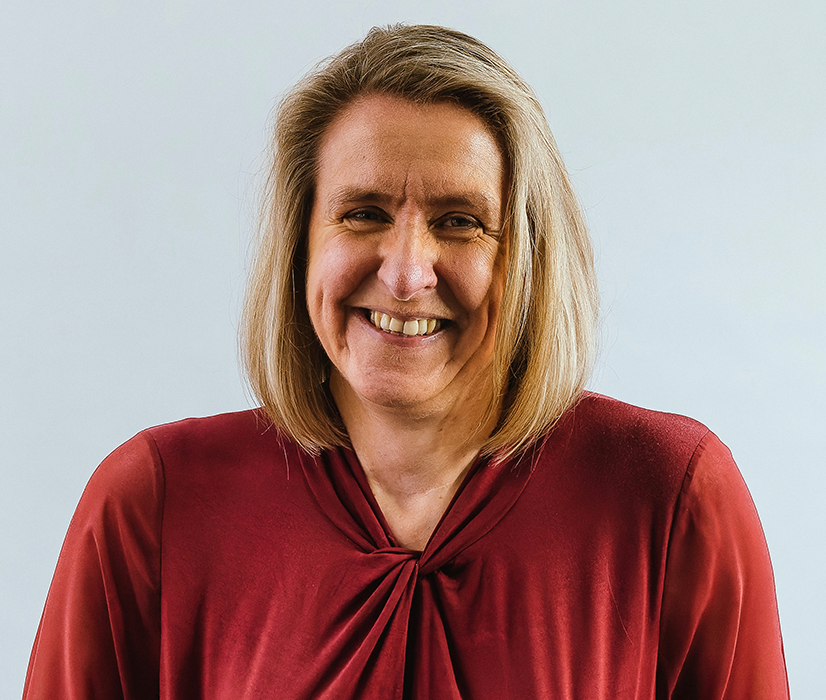
What does it mean to be a woman in the area you work in?
Teaching and researching in creativity, small business and entrepreneurship means that I am able to engage with inspirational colleagues, students, business owners and industry partners...both women and men.
Working in academia has given me the opportunity to develop a small business development programme, called Captured, which supports entrepreneurial learning through a series of facilitated workshops where small business owners are matched with 'mentor-managers' from large regional businesses. As a team we have noted that women small business owners dominate the cohorts, but we have fewer women 'mentor-managers' than men. Is that because women are less confident that their 'mentoring' will be valuable due to gendered assumptions? We know women and men make equally good mentors and we are striving to show the power of our women mentors and women-led businesses.
What privileges or challenges do you stereotypically face?
As a white British woman born to professional parents at a time when university undergraduate education was 'fee-free' and now being on a permanent contract I am aware just how privileged I am.
I know women have been disproportionately adversely affected by the pandemic, but I found that my two male co-researchers who were sharing home-schooling with their partners were more impacted than me as my children are university age.
That said I was one of only three women on my Land Economy degree at university and recently found a letter I'd written to my Mum telling her I'd been asked in an interview for a graduate role in a large surveying firm how I would survive in a "man's world". I don't know how I answered, but I didn't get the job!
What role would you like to play in relation to women's rights in your area of expertise?
I would like to support more women to achieve their ambitions, wherever those ambitions lie, by ensuring they truly value what they do and celebrating their achievements.
What advice would you give to young women going into your industry?
Be passionate about your research and use it to make a difference to stakeholders who matter to you.
Be passionate about your teaching and always curious to learn from our wonderful, diverse student body.
Be empathetic, open-minded and willing to confront your own biases, as well as to challenge those of others.
Which women inspire you?
My Mum, Gwyneth Baker, will be forever an inspiration. Her ability to accept and adapt to the challenges of Multiple Sclerosis were nothing short of miraculous and her independence, wisdom, grace and love inspired many others too.
Dr Bunmi Eniola, Physical Geography Facilities Manager
"I would say to young women of colour especially, to continue to push doors and push the boundaries of what you can achieve."
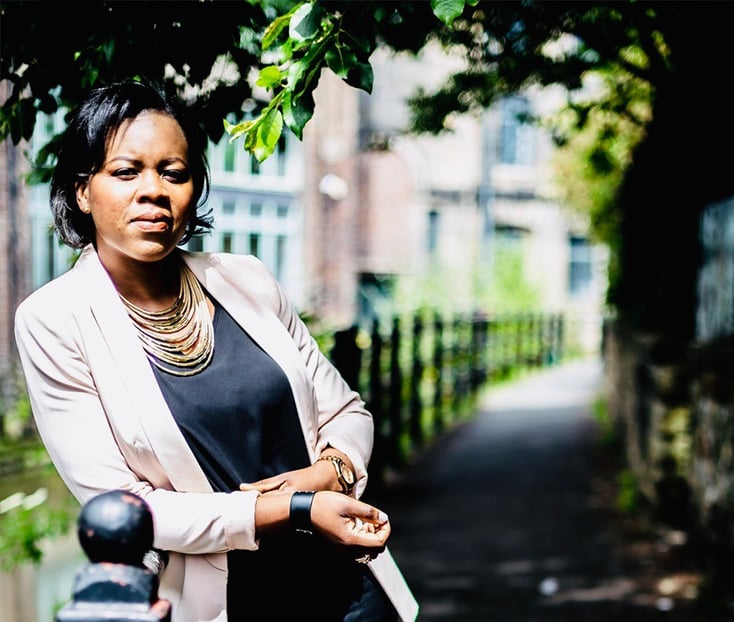
What does it mean to be a woman in the area you work in?
Physical Geography has been historically a predominantly male dominated profession, although this is thankfully changing. As a woman of colour, in a management and leadership position, this is even more glaring. I work with both academics, professional colleagues and with students across all tiers. My visibility as a woman, and as woman of colour, is even more important in the current climate that we live in.
I do enjoy working at the University and in the North East, and to see that where I work can be inclusive but that it also recognises that more work still needs to be done in terms of diversity of the workforce is encouraging. I am a contributing member of the School and Faculty Equality Diversity and Inclusion committees, where I believe I have a voice and I can present to the table ideas that enable inclusivity and diversity in the workplace.
What privileges or challenges do you stereotypically face?
I doubt I face any privileges in the workplace. I believe I am treated fairly by my colleagues, and I do hope that I treat them fairly as well. In terms of stereotypes, I have to be acutely aware of them more in the workplace because I face them occasionally in society. An example is being aware of patronising tones verbally, sometimes in written emails or when a visitor came into my area of work asking to speak to the manager and was surprised when I said I was the 'manager'.
What advice would you give to young women going into your industry?
I would say to young women of colour especially, to continue to push doors and push the boundaries of what you can achieve. Go for that course if you really want to do it but also be gentle and kind to yourself when you do not achieve the dreams you aspire to. I would like to say that there are indeed workplaces and allies who are willing to change the status quo and push the doors alongside you! They do exist - you just need to find them.
Nancy Kerr, Lecturer in Folk and Traditional Music
"I'm committed to the advancement of emerging female artists."
What does it mean to be a woman in the area you work in?
As a composer and performer working within a tradition of art-as-activism, I'm interested in the amplification of previously under-heard voices via music and song. I feel that world, folk and traditional musics have a unique value in this area, and that to offer marginalised people access to self-expression and enable them to see and hear themselves reflected in our shared culture is one of the artist's most important roles.
What role would you like to play in relation to women's rights in your area of expertise?
I want to continue to contribute songs to communities and movements and to explore women's hidden histories. I'm committed to the advancement of emerging female artists, as an educator and through the mentorship schemes with which I am currently involved, and also by being present as a friend and colleague with several decades of experience in professional music.
What advice would you give to young women going into your industry?
Don’t be afraid to ask for support, and nurture inter-generational relationships in particular. Sometimes it can feel as if we are reinventing the wheel when trying to make advancements in rights and access, but artists/activists working in other, allied movements and from different generations often have existing language for the conversations we are trying to have in our new contexts.
Which women inspire you?
North Carolina-born blues musician Elizabeth "Libba" Cotten (1893-1987) was an innovative and gifted instrumentalist and composed the classic song Freight Train. She had an immense influence, both directly and in a broader cultural sense, on many of the amazing women who have taught me music throughout my life.
Dr Vi Parker, Equality, Diversity and Inclusion (EDI) Training Lead
"I believe that everyone has the capacity to unlearn their biases and to learn new behaviours for a more equal society."
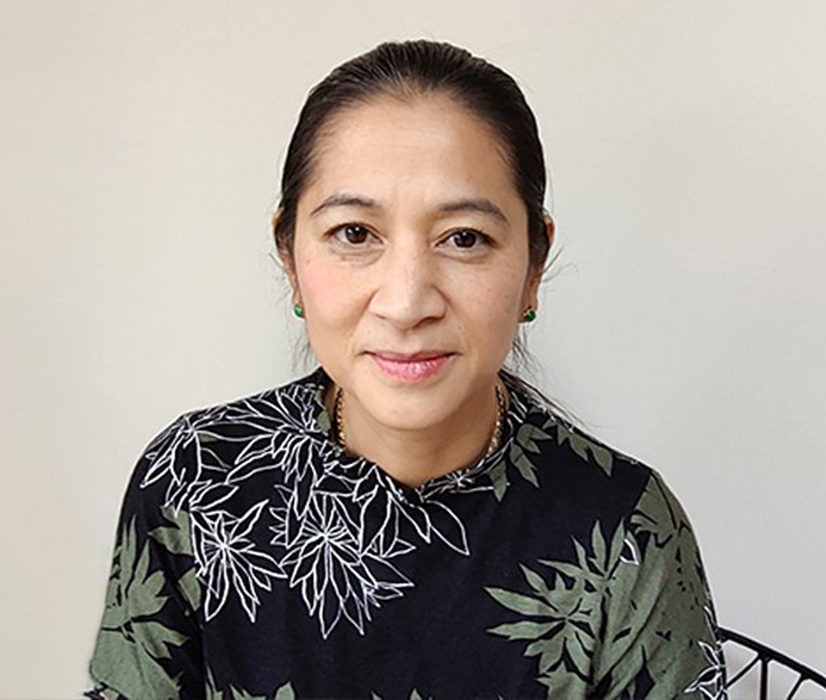
What does it mean to be a woman in the area you work in?
I see my position as Newcastle University’s Equality, Diversity and Inclusion Training Lead as a great opportunity to challenge and help support true change for a more inclusive and diverse culture in the University.
I am a woman, a former refugee and a member of the Southeast Asian community (Vietnamese), I have experienced gender inequality, racial discrimination and social and economic disadvantages. These experiences put me in a unique position to appreciate the challenges and that there is still a lot of work to be done.
I fundamentally believe that everyone has the capacity to unlearn their biases and to learn new behaviours for a more equal society.
What role would you like to play in relation to women's rights in your area of expertise?
I would like to be a supporter of, and an advocate for, women because I really like and subscribe to the phrase, 'Lift as you Climb' by Viv Groskop. I believe in collegiality, in working and supporting each other to succeed and thrive. I believe in healthy competition, not rivalry.
I would also like to include more men in the conversation about women’s rights. I believe that the most impactful change for equality requires everyone being on board.
What advice would you give to young women going into your industry?
I would say to all young women: know yourself but be open minded, curious and generous, and that time flies by so be an active, doing person. I would also share the motto that I observe ‘Say what you mean and mean what you say’.
Which women inspire you?
I am inspired by the women I work with who are doing amazing things to change the system. I am inspired by the women who are breaking barriers, creating and working in the world around me such as Alexandria Ocasio-Cortez, Michele Obama, Amanda Ngoc Nguyen (civil rights activist and CEO and found of Rise), and Chimamanda Ngozi Adichie (author; please read her book Dear Ijeawele, or a Feminist Manifesto in Fifteen Suggestions).
Finally, the woman I am most inspired by is my mother, Bui Thi Thu Ha. She sacrificed everything so that I could have a life, a future. She worked hard to build strong foundations so that I could achieve my ambitions and dreams. Always lifting me up above herself.
Dr Tina Gharavi, Senior Lecturer in English: Film/Digital Media
"Stories told from a female perspective are needed now more than ever."
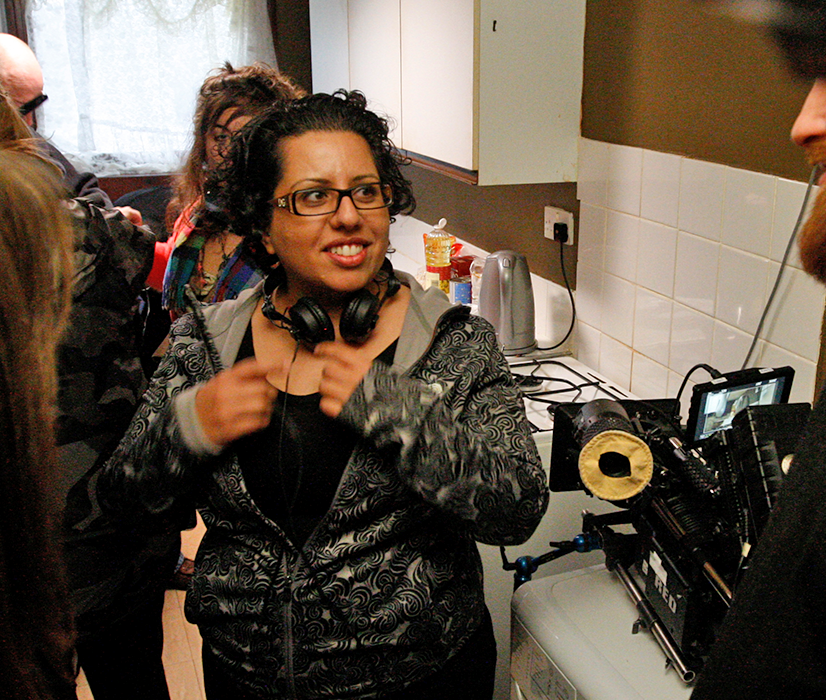
What does it mean to be a woman in the area you work in?
I've never considered myself a "female" anything; I just wasn't raised that way. My traditional Persian father had as high an expectation of me as any son so gender was never an excuse or a consideration. It frankly never factored.
Luckily, being a woman in film is currently an advantage. Stories told from a female perspective are needed now more than ever. For now, I am grateful I can tell stories and I am glad the industry is working on leveling the playing field.
What privileges or challenges do you stereotypically face?
While I rarely considered my gender growing up... Throughout my career, I have experienced a fair share of unconscious bias. Usually in the form that people don't assume I am the director on set. This can lead to some pretty funny interactions. My favourite (though painful example) is being mistaken for a caterer by an extra. I found their face amusing as we met again on set only for me to direct them. What a picture. However, there was no resentment from me. I get it. You've not seen many five-foot-two Persian directors. The poverty of imagination is not a reflection of me, but of them.
What role would you like to play in relation to women's rights in your area of expertise?
For now, I am enjoying being the first of my tribe working in different sectors. Being the advance party for woman and diverse folk who will invariably come. I might not be the best, but I certainly feel I am breaking down the barriers for others who will follow. I undertake a large amount of mentorship for young directors and I work on advocacy where I can.
What advice would you give to young women going into your industry?
I am currently writing a memoir/screenwriting manual because I think the story needs to be told. What it has meant to make films and what is the importance of our individual stories. The biggest issue I deal with when teaching or mentoring is to remind folk that their stories DO matter. Telling them and having them exist is really vital. We are our stories.
Helen Currie, Degree Programme Director of Business, Accounting and Finance (PwC Flying Start degree)
"Push yourself out of your comfort zone – some of the most satisfying moments of my career started off as something terrifying."
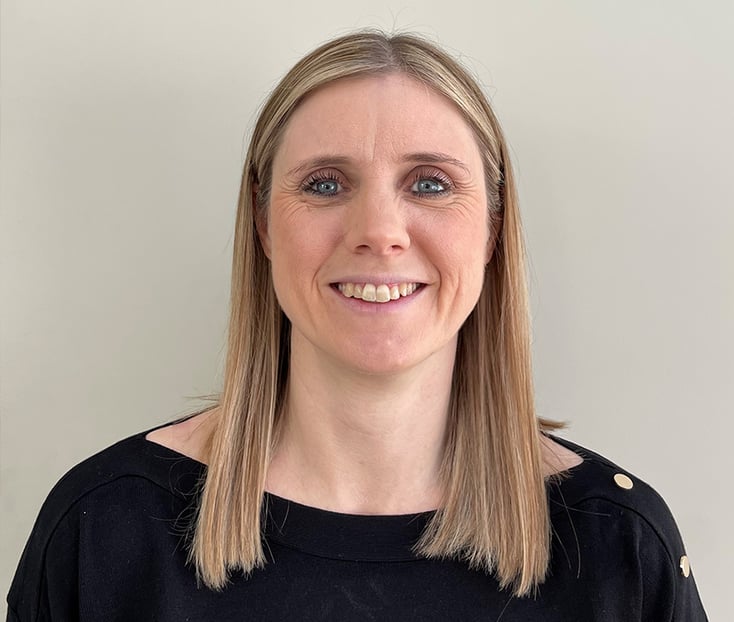
What does it mean to be a woman in the area you work in?
I acknowledge that as a white woman I will have experienced privileges throughout my life without being aware of them.
I feel privileged to work so closely with our students. The tight-knit community of the programme means that I get to know our students well. One of the most rewarding roles that I have undertaken in the Business School is that of Senior Tutor, helping students to access the support they needed to succeed.
Juggling family life and a career has been tricky at times, even with an abundance of family support. I couldn’t just stay late to finish something off or travel without significant advance notice. I often felt guilty for working when my three sons were young. I had to become super-organised, something that I’ve kept up even though my sons are older, and life is easier.
What role would you like to play in relation to women's rights in your area of expertise?
I am currently working with PwC and ICAEW to encourage more female school-leavers to consider a career in Accounting. Our female students excel on the programme. It is important that we debunk the myth that this career path is not suitable for women.
We are celebrating the 20th anniversary of the Newcastle Flying Start degree in 2022. I am hoping that the promotional activities that we are working on for that will also encourage more women to consider a career in Accounting and Finance.
What advice would you give to young women going into your industry?
Push yourself out of your comfort zone – some of the most satisfying moments of my career started off as something terrifying.
Don’t let imposter syndrome affect your confidence – after learning that almost everyone experiences it, I now choose to ignore it.
Natasha Mauthner, Professor and Director of Research, Business School
"My approaches to teaching, research and leadership are influenced by feminism."
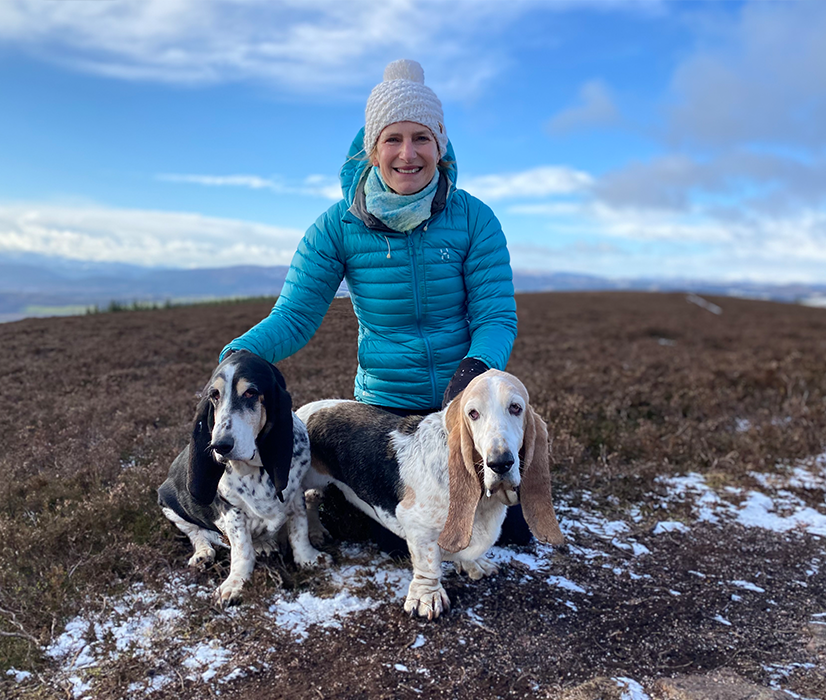
What does it mean to be a woman in the area you work in?
I am a Professor of Social Science Philosophy and Method, as well as Director of Research, in the Business School. My approach to teaching, research and leadership are influenced by feminism. I draw on feminist thinking in my teaching – for example, I have taught courses on gender, work and organisation. In my research, I use feminist theories and methodologies to investigate issues such as women’s mental health, balancing work and family life, the intersection between technology and society, and the ethics of data sharing and big data. A feminist approach means listening to the voices of women and marginalised perspectives. But it also involves conceptualising research problems in relational terms and challenging taken-for-granted binaries and hierarchies within these fields. I have held research leadership roles for nearly a decade, and my approach is based on listening, being inclusive, collaboration, and a feminist ethic of care.
What privileges or challenges do you stereotypically face?
I feel very privileged to have been able to have a rewarding career as well as have three children. One of the challenges that women face is having to work harder than men to progress. This means that I have been promoted later in my career than men at equivalent stages. I have also faced a gender pay gap. I also wonder whether there are gender effects in terms of the personal and research costs of taking on leadership and management roles in universities. Women seem to put more into these roles – perhaps because of gender stereotypes in how women leaders perceive themselves and are perceived by others. Having said this, I have felt incredibly supported since joining Newcastle University in 2018. I feel privileged to be working in an institution that has so many inspiring women leaders and that is committed to equality and social justice.
What advice would you give to young women going into your industry?
Follow your ambitions. Believe in yourself. Find supportive mentors.
Which women inspire you?
I am inspired every day by so many women in all areas of my life – family, friends, colleagues, mentors, thinkers, writers, campaigners, athletes – past and present! This includes an amazing circle of women colleagues in the Business School, and also in the HaSS Faculty, who provide a supportive and nurturing network. What do they have in common? They are strong women, who are infectiously enthusiastic and have the power of their convictions.
The feminist scholars who have had the most influence on my thinking and research are: Ann Oakley – feminist sociologist; Carol Gilligan – feminist psychologist; Karen Barad – feminist theorist, physicist and philosopher of science; and Donna Haraway – feminist theorist and formerly a biologist. I am currently captivated by the feminist philosopher, Mary Midgley. I became interested in her work when I moved to Newcastle and I’m thoroughly enjoying her book 'What Is Philosophy For?'
Dr Carol Moxam, Lecturer & Specialist Speech & Language Therapist
"It is through moments of struggle that you realise your resilience and true self and these struggles turn out to be your greatest assets."
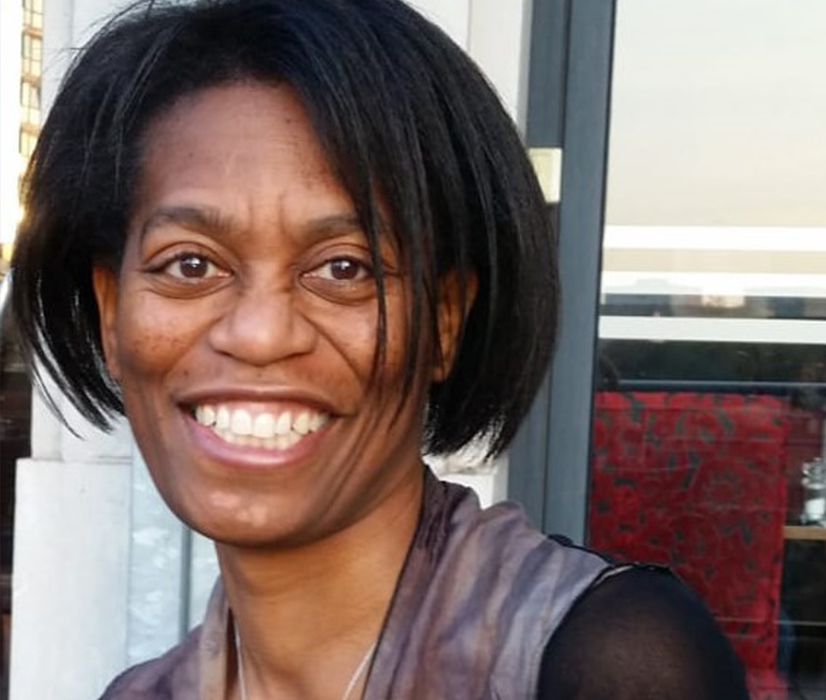
What does it mean to be a woman in the area you work in?
I am an academic Speech and Language Therapy (SLT) clinician. My passion is empowering children and undergraduate and postgraduate students of all abilities to realise their potential. I have been director (2004-2017) of The Language for Literacy Clinic (TLC) and the Children’s Speech and Language Clinic (2018-current) working with children, their families and education staff, to support speech, language, and literacy skills development. Speech and Language Therapy students are supported in developing their skills to facilitate child learning within these clinics.
What privileges or challenges do you stereotypically face?
Being a black female within HE is a privilege as I can bring my own flavour (the good, the bad and the I am working on it) to my role within Newcastle University. I feel privileged to represent marginalised individuals from non-traditional backgrounds.
The greatest challenge is the feeling of responsibility and the weight of carrying the stereotypes associated with Afro-Caribbean women. As an Afro-Caribbean black person I feel a huge responsibility to portray black women in a positive light. I try to avoid being misquoted and misunderstood and so I am careful about what and the way I present, the experiences I discuss, and how open I am. My difference is the thing people see, and visual differences are judged when people around you do not look like you. The challenge comes from not always trying to fit in/conform to expected behaviours that are in conflict with my true self.
What role would you like to play in relation to women's rights in your area of expertise?
Empowering women from all backgrounds to ask the right questions and using their resources to seek out the answers.
What advice would you give to young women going into your industry?
It is through moments of struggle that you realise your resilience and true self and these struggles turn out to be your greatest assets.
Which women inspire you?
I could list all the inspirational black women I know. However, for me, women who are self-assured in what they know and what they do not know and are not afraid to voice inspire me. There are plenty of inspirational women within society both sung and unsung, but I am fortunate to say that my greatest inspiration are the women within my family. They are the strongest women I have ever come across and have and continue to inspire me every day.
Dr Karen Elliott, Senior Lecturer in Enterprise and Innovation (Fintech)
"My main focus is investigating digital and data ethics - that we engage in responsible and ethical design to perform a social good."
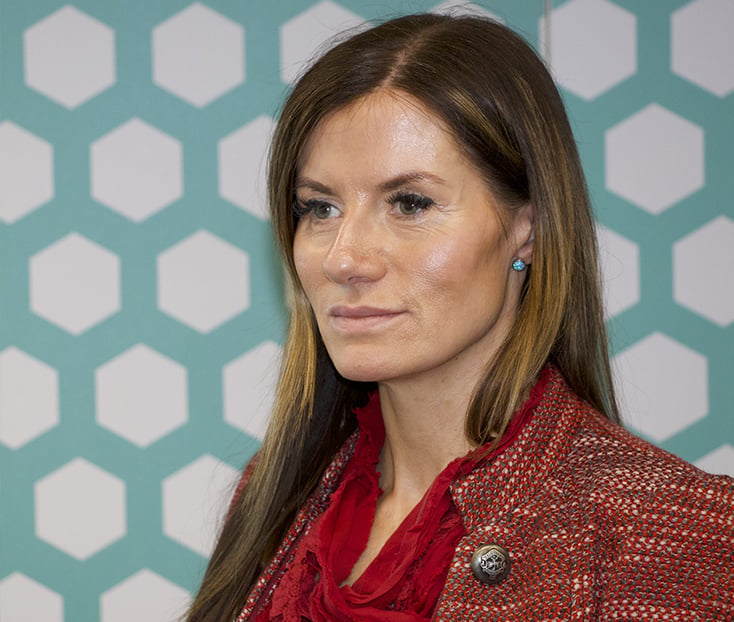
What does it mean to be a woman in the area you work in?
Working in the socio-technical space, my work merges business and technology in examining financial technologies or ‘Fintech’. At present, the percentage of women working in this field is low, for instance, in female founders for start-ups, only 11% in London and 4% beyond. This does not include female programmers nor address EDI in building platforms, algorithms and artificial intelligence driving the Fintech sector. Hence, I enjoy learning from others on how best to encourage women to engage in the sector and to look to role models such as Leda Glyptis, Anne Marie Imafidon and Charlotte Crosswell amongst others.
My main focus is investigating digital and data ethics - that we engage in responsible and ethical design to perform a social good through promoting Corporate Digital Responsibility to collaboratively establish an equitable digital society.
What privileges or challenges do you stereotypically face?
The challenges are for all women, to ensure that we have a voice in the digital economy and era, specifically co-creating the design phase of technologies to include female perspectives. For instance, we are aware of the scandals surrounding technology engineered without such input, i.e., credit cards awarding more credit to males over females irrespective of income, lack of content in automated assistants to include female oriented interests and misogyny and inequality becoming reified and codified into digital technologies premised on historically bias data sets.
The privileges are being surrounded by inspiring women and men who see such challenges or ‘wicked problems’ - complex and messy issues that cannot be resolved but, can be managed by real stakeholder involvement in the socio-technical space and collaborate to address them. The latter is my passion and is thankfully shared by many in industry and academia.
What role would you like to play in relation to women's rights in your area of expertise?
I am in a position to have some influence through two roles. First, I was asked to join the Prime Minister's Challenge Group for Dementia as Digital Inclusion expert. This role allows the translation of the work in the Fintech arena into ensuring that those in vulnerable positions through health, life events, capabilities or resilience constraints are represented in the digital society, specifically, women.
Second, as an Ambassador for the Digital Poverty Alliance, the group collaborates to help those suffering from social and digital poverty and assisting in addressing wicked problems including the issue of gender, to help citizens benefit from digital skills and devices whilst helping them avoid poverty premiums (paying more as viewed as a risk because of their poverty label).
Which women inspire you?
Dame Stephanie "Steve" Shirley – for overcoming bias in computing science by using the name "Steve" to secure contracts for her company and designing many digital technologies that we take for granted today. In addition, Dame Stephanie employed women looking after children to work from home, and rewarded them by sharing the profits of the business with them. From her insights, courage from her childhood and escaping the War to "giving away" her monies and setting up an autism charity in memory of her own son, what is not to inspire?
Dr Klara Scheurenbrand, Lecturer in Marketing
"I would like to contribute to deconstructing the dominant "masculine" logic in academia."
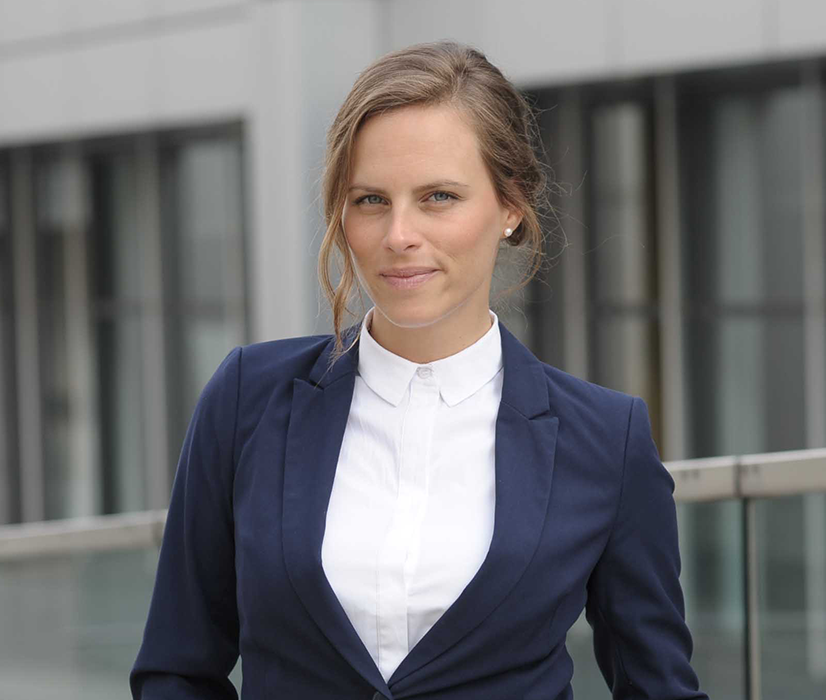
What does it mean to be a woman in the area you work in?
Being a female early career researcher in academia means working extremely hard and proving yourself constantly in a landscape that is very competitive, more often than not political, and follows 'masculine' conventions.
What privileges or challenges do you stereotypically face?
Challenges I have faced so far are somehow related to age gaps and the underlying belief that people who identify themselves as 'older' automatically believe they are 'wiser'. It happens that colleagues underestimate your abilities because they assume you have no experience and try to mansplain the job. At that point, I enjoy revealing my real age and professional background and have people jumping out of their skin. But being perceived as young comes with the advantage that I connect quickly with people around me and networking comes easy.
What role would you like to play in relation to women's rights in your area of expertise?
I would like to contribute to deconstructing the dominant logic in academia. That is to say, more acknowledgement of values that are being neglected at the moment and also, raising awareness of the very real power dynamics to which early career researchers have to submit to. This is as much related to gender as it is to hierarchy and should be called out.
Which women inspire you?
I don't worship the 'macro' personalities in the press. I have met amazing women in my micro environment, who have difficult backgrounds yet still have built something for themselves through resilience and a strong belief in themselves. I admire those who despite all odds have come out as winners.
Natalie Ellis, Business Management Alumna
"Nothing beats consistency and focus on the right things - if you get both of those things down, your success is inevitable."
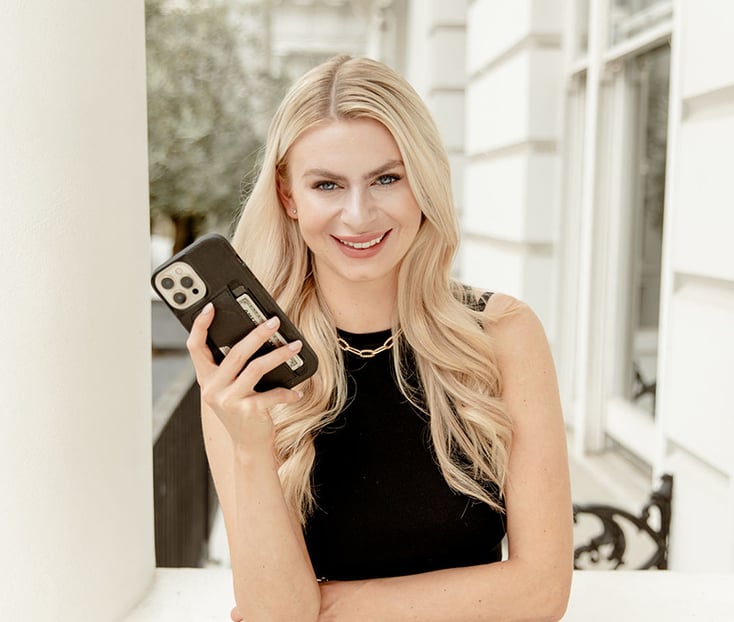
What does it mean to be a woman in the area you work in?
I love being a woman in the business space, I've been able to create an incredible circle of mentors, peers and friends who are all aligned with the vision of supporting women's success.
What role would you like to play in relation to women's rights in your area of expertise?
I would love to support women in building wealth, I truly think we can make a massive impact on the world when we do so.
What advice would you give to young women going into your industry?
My advice would be the same for both men and women. Nothing beats consistency and focus on the right things - if you get both of those things down, your success is inevitable.
